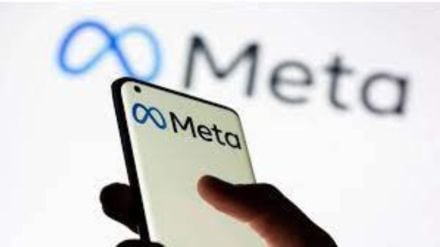In 2008, Facebook added a well-known tagline to its homepage, promising its users that the platform is “free, and always will be”. Fast forward to 2023, parent company Meta, with a revenue of over $116 billion, is taking a page from the playbook of fellow social media giants Twitter and Snapchat to roll out a subscription bundle, dubbed Meta Verified. Designed to authenticate Facebook and Instagram accounts using government IDs and grant the coveted ‘blue tick’, this has set the industry abuzz, with talk of a fundamental change in the influencer marketing landscape.
“Meta’s introduction of paid verification is an intriguing move, as it introduces a new way for creators and influencers to monetise their content. This could potentially open up new opportunities for those in the creator economy,” said Kalyan Kumar, CEO and co-founder, KlugKlug.
The total spend on digital marketing is over $8 billion in India, with spends on influencer partnerships estimated at around $0.35 billion. Some experts say that unlike Twitter Blue, Meta Verified might see a more enthusiastic response from influencers as both Facebook and Instagram are aimed at curating ‘entertaining’ content with the opportunity to plug in various products and services. With the unique promise of greater visibility — thanks to prominent positioning in some areas of the platform like search, comments and recommendations — this could lead to an initial spike in the number of users who adopt it, they say. “It can create a FOMO of sorts for influencers who are starting out, as if they need this basic investment to get started,” said Karthik Srinivasan, an independent communications consultant.
Vivek Yadav, co-founder of Cosmofeed, a creator platform, added, “If the new plan can help creators get discovered, we can expect a large number of users to come on board. Active users who are building content on these social platforms should be able to grow faster with such a subscription.”
Introduced after a tumultuous year for the firm that saw ad revenues plummet, share prices fall more than 70%, and 11,000 lay-offs, the service is priced at $11.99 (990+) for web and $14.9(1,200+) on iOS and Android phones. It offers a verified badge, increased visibility, enhanced customer support, and “protection from impersonation”. Meta Verified will be first tested in New Zealand and Australia, and is expected to add between $2 billion and $3 billion to the company’s revenue, according to Bloomberg Intelligence.
Cost hurdle
As social media becomes more pay-to-play, giving too much preferential treatment to verified users’ posts may backfire and harm the quality of content on the platform, warn experts. Meta refused to provide any additional details of implementation for now when contacted by Financial Express.
Indeed, a big hurdle in India would be the cost. “I don’t think that the subscription will have many takers as the pricing is very high. We’ve seen this happen with companies like Netflix who tried to introduce a premium subscription model here. It didn’t work and they had to customise prices accordingly,” said Sagar Pushp, co-founder and CEO, ClanConnect.
Moreover, pricing may create a barrier to entry for smaller influencers or those just starting out and they might prefer to grow organically instead, experts said. Many already enjoy an engagement rate as high as 10%-20%, they added.
“However, for the new entrants who do adopt it, we will be seeing a reduction in the time of growth curve,” said Alin Choubey, business head-north, FoxyMoron (Zoo Media).
The only way to justify the cost is by giving enough benefits, and thus experts are in a wait-and-watch mode as more details on how content will be pushed on the platforms are yet to come.
“Increased visibility may vary depending on a subscriber’s existing audience size and the topic of their posts. Subscribers with a smaller following may see a more noticeable impact to their reach since their audiences are smaller,” Meta said in a blog post.
While many are predicted to subscribe, whether they continue to stay on will depend mainly on how widely the service is adopted, said Samit Sinha, founder and MD, Alchemist Brand Consulting. “If it is seen creating a two-tier system with a genuine distinction between a ‘premium’ account and ‘non-premium’ one, and if people start associating a higher social status with having a blue tick and visibility increases substantially, then brands would prefer to associate with influencers who are verified. That will become the norm in the industry for credibility and degree of influence. However, I find this unlikely, and if the adoption is limited, Meta Verified may not make much difference,” he adds.
